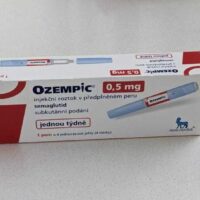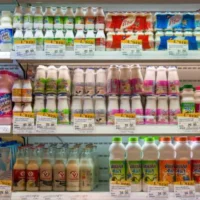In the dynamic landscape of food preservation technology, Apeel Sciences has become a focal point of debate and scrutiny. Supported in part by grants from the Bill and Melinda Gates Foundation, the company has introduced a seemingly novel approach to extending the shelf life of fruits and vegetables.
An Appealing Solution or a Chemical Concern?
Apeel Sciences’ signature product, Edipeel, has sparked controversy and raised important questions about the safety and ecological impact of such interventions.
At the heart of the controversy is Edipeel’s composition, primarily consisting of monoglycerides and diglycerides, which are recognized by the FDA as generally safe and are similar to compounds found in common oils like olive and coconut oil. However, skepticism remains among some consumer advocacy groups, notably A Voice for Choice Advocacy, which has raised concerns over the chemical processing of Edipeel and the trace presence of substances like heptane, ethyl acetate, and heavy metals, although these levels are within the safety standards set by regulatory bodies.
Despite its commendable intention, the chemical contents of the coating have drawn the attention of critics. For instance, the film includes substances like ethyl acetate, acetonitrile, and most concerning for many — toluene and hexane. Both these chemicals trigger questions about safety, especially due to their toxicological profile.
According to an FDA document that provides information about Apeel Sciences’ GRAS (Generally Recognized as Safe) status, specifications and limits are provided for various substances in the finished product. These include ethyl acetate, acetonitrile, toluene, hexane, lead, palladium, and arsenic. The document outlines the levels at which these substances are considered safe for consumption.
Toluene’s Toxic Tale

Toluene, a versatile solvent prevalent in industries like paints and adhesives, can have dire health implications if not handled with care. Contact with high amounts can lead to skin, eye, and respiratory tract inflammation, posing immediate risks to those exposed. Moreover, prolonged and repeated exposure to toluene is associated with more serious concerns.
Studies have linked it to neurological effects, affecting the central nervous system and potentially leading to symptoms like headaches, dizziness, and even memory problems. In pregnant women, toluene exposure raises the risk of developmental complications in the fetus.
These risks highlight the need for strict safety measures when dealing with products containing toluene, and the importance of exploring alternatives in industries where its use is prevalent.
Hexane: As Harmful as It Sounds?
Hexane, on the other hand, is a neurotoxicant. Per information on Toxic Free Future, this organic compound is typically derived from crude oil and is commonly used as a solvent for extracting oil from seeds. Its insidious nature lies in the potential for long-term nerve damage, even at low exposure levels.
This risk is particularly pronounced in industries relying on hexane for oil extraction processes. Workers in such environments must exercise utmost caution to minimize exposure. The FDA’s GRAS (Generally Recognized as Safe) designation for products like Apeel does not guarantee immunity from potential long-term effects.
Therefore, it becomes crucial for regulatory bodies and industries to reevaluate the safety standards surrounding hexane usage, considering the potential health risks associated with its prolonged exposure.
Tips for Making Healthier and Eco-friendly Food Choices
In a world where our food choices significantly impact both our health and the environment, making informed decisions is key. Whether it’s questioning the safety of food preservation technologies like Edipeel or understanding the benefits of organic produce, every choice matters. From selecting organic and locally sourced produce to understanding the nuances of food labels, these tips aim to empower you to make choices that benefit both your health and our planet.
- Prioritize Organic Produce: Opt for organic fruits and vegetables to reduce exposure to synthetic pesticides and fertilizers. Organic farming practices are designed to be more sustainable and eco-friendly.
- Understand Food Preservation Methods: Stay informed about different food preservation technologies. While innovations like Edipeel have their advantages, it’s important to understand their implications for health and the environment.
- Read Labels Carefully: Always check product labels for information on coatings or additives. This can help you make more informed decisions about the produce you consume.
- Support Local and Seasonal Produce: Buying locally and seasonally not only ensures fresher produce but also reduces the carbon footprint associated with long-distance transportation. This often eliminates the need for extensive preservation methods.
- Educate Yourself on Food Safety Standards: Familiarize yourself with food safety standards and regulations. Understanding what is considered safe and why can help alleviate concerns and promote better choices.
- Consider Home Gardening: If feasible, grow your own fruits and vegetables. This allows you to control what goes into your food and reduces reliance on commercial produce.
- Advocate for Transparency in Food Technology: Stay engaged in conversations about food preservation technology and advocate for transparency from companies regarding their methods and the chemicals used.
- Reduce Food Waste: Be mindful of food waste. Using up produce before it spoils can reduce the need for extensive preservation methods and is better for the environment.
- Explore Natural Preservation Methods: Learn about natural preservation methods like canning, drying, or freezing that can be healthier alternatives to chemical preservatives.
- Stay Informed and Adaptive: Keep abreast of the latest research and developments in food science and technology. Being informed enables you to adapt your food choices as new information emerges.
Adding Detoxifying Superfoods Into Your Diet
In our journey towards healthier living, detoxification plays a crucial role. It’s important to recognize that a diverse diet rich in various superfoods can enhance your body’s natural detoxification processes. The following tips provide a guide to including a range of nutritious and detoxifying foods in your diet.
- Diversify with Leafy Greens: Incorporate a variety of leafy greens like kale, spinach, and Swiss chard. They are packed with essential nutrients and are known for their detoxifying properties.
- Leverage the Power of Berries: Berries, such as blueberries, raspberries, and blackberries, are high in antioxidants which aid in detoxification and overall health.
- Embrace Cruciferous Vegetables: Include broccoli, cauliflower, and Brussels sprouts in your diet. These vegetables are rich in fiber and essential nutrients that support the body’s natural detox processes.
- Incorporate Garlic and Onions: These are not just flavor enhancers; they contain compounds that help the liver to detoxify various substances.
- Add Citrus Fruits: Lemons, oranges, and grapefruits contain high amounts of vitamin C, which aids the body in transforming toxins into digestible material.
- Use Turmeric and Ginger: These spices are not only flavorful but also have strong anti-inflammatory and antioxidant properties, supporting detoxification.
- Include Beets: Beets are high in vitamins and minerals that help cleanse the liver and purify the blood.
- Stay Hydrated with Green Tea: Green tea is rich in antioxidants and supports the body’s natural detoxification system, particularly the liver.
- Opt for Nuts and Seeds: Almonds, flaxseeds, and chia seeds are high in essential nutrients and fiber, aiding in digestion and detoxification.
- Choose Whole Grains: Whole grains like brown rice, quinoa, and oats are high in nutrients and fiber, supporting the body’s natural detoxification pathways.
Balance Between Food Conservation, Ingenuity, and Health Impact
Innovation in today’s fast-paced world is undeniably crucial. Challenges are an inevitable part of this process, and Apeel Sciences isn’t an exception. While the provenance and safety measures are still a matter of debate, the benefits of this product, like reducing food waste and increasing shelf life, shouldn’t be hastily dismissed. At the same time, the possible necessity of incorporating a detoxifier like spirulina introduces a whole new dynamic to the equation.
This delicate balance between food conservation, ingenuity, and health impact is certainly a hot topic. All we can do now is watch this space and hope that the promise outweighs the potential risks. After all, that’s the beauty and the challenge of groundbreaking innovation.



